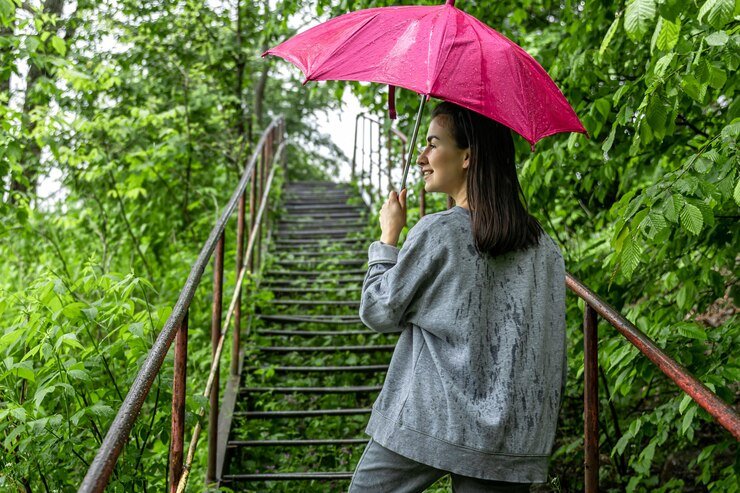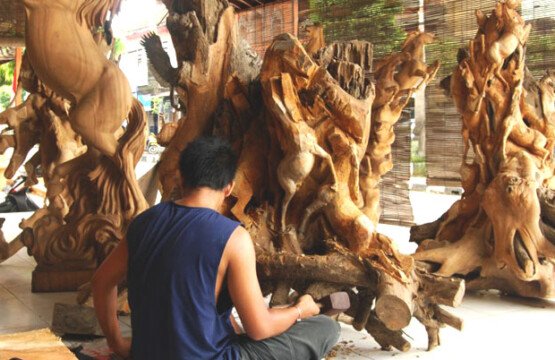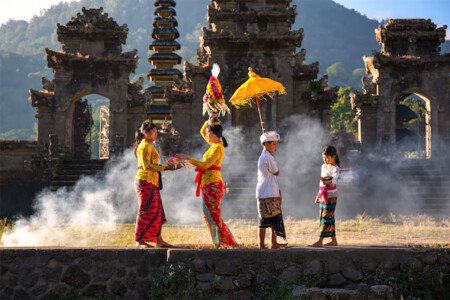The mention of Bali’s rainy season often sends travelers into a panic, conjuring images of endless downpours and ruined vacation plans. But here’s the truth that locals have known for centuries: Bali during the wet season is nothing short of magical. From November to March, the Island of the Gods transforms into a lush, emerald paradise where waterfalls thunder with newfound power, rice terraces shimmer like liquid jade, and the air carries the intoxicating scent of frangipani and wet earth.
🌦️ Understanding Bali’s Rainy Season
When Does It Rain?
Bali’s wet season typically runs from November through March, with December and January being the wettest months. However, don’t expect continuous rainfall like you might experience in other tropical destinations. The rainy season in Bali is characterized by:
- Afternoon thunderstorms that usually last 1-3 hours
- Morning sunshine that’s perfect for early adventures
- Intense but brief downpours rather than all-day drizzle
- Regional variations – the south tends to be drier than the mountainous north
Temperature and Humidity
During the rainy season, temperatures remain pleasantly warm, ranging from 24°C to 30°C (75°F to 86°F). The humidity does increase, creating that classic tropical feel, but the frequent rain actually provides refreshing relief from the heat.
🌿 The Magic of Wet Season Bali
Nature’s Grand Performance
The rainy season awakens Bali’s natural beauty in spectacular ways:
Waterfalls at Their Peak 💦
- Sekumpul Falls becomes a thundering cascade of seven streams
- Tegenungan transforms into a powerful curtain of water
- Hidden gems like Banyumala Twin Falls are at their most photogenic
Emerald Rice Terraces 🌾
- Jatiluwih terraces become mirror-like pools reflecting the sky
- Tegallalang’s famous stepped landscape turns brilliant green
- Local farmers begin the planting season, creating picture-perfect scenes
Tropical Gardens in Bloom 🌺
- Frangipani trees burst with fragrant flowers
- Bougainvillea creates vibrant splashes of color
- The Botanical Gardens of Bedugul reach peak beauty
🏛️ Indoor Adventures and Cultural Immersion
Temple Exploration
Rainy season provides the perfect excuse to dive deep into Bali’s spiritual heart:
Tanah Lot 🏯 Visit during the late afternoon when dramatic clouds create stunning backdrops for photos. The temple looks even more mystical shrouded in mist.
Besakih Temple Complex ⛩️ The “Mother Temple” of Bali offers extensive covered areas and indoor shrines perfect for rainy day exploration.
Uluwatu Temple 🦅 Time your visit for the covered Kecak fire dance performance, which continues rain or shine.
Museums and Art Galleries
Agung Rai Museum of Art (ARMA) 🎨 Spend hours exploring traditional and contemporary Balinese art in climate-controlled comfort.
Blanco Renaissance Museum 🖼️ This eccentric museum in Ubud showcases the works of Spanish artist Antonio Blanco and offers covered terraces with jungle views.
Setia Darma House of Masks and Puppets 🎭 Discover the fascinating world of Indonesian performing arts through an impressive collection of masks and puppets.
🍳 Culinary Adventures
Cooking Classes
Rainy afternoons are perfect for learning the secrets of Balinese cuisine:
Traditional Compound Classes 👨🍳 Many cooking schools operate from traditional family compounds with covered pavilions, offering authentic experiences regardless of weather.
Market Tours and Cooking 🥘 Start your day with a covered market tour, then retreat to the kitchen as afternoon rains begin.
Food Scene Exploration
Covered Warungs 🍛 Seek out traditional warungs with roofs and discover local specialties like:
- Bebek betutu (slow-roasted duck)
- Rendang (spicy beef curry)
- Gado-gado (Indonesian salad with peanut sauce)
Restaurant Hopping 🍽️ Many restaurants feature covered terraces where you can watch the rain while enjoying Indonesian coffee and local delicacies.
🧘 Wellness and Relaxation
Spa Treatments
The rainy season is spa season in Bali. The sound of rain on rooftops creates the perfect ambiance for:
Traditional Balinese Massage 💆♀️ Experience the healing touch of Balinese massage while listening to tropical rainfall.
Flower Bath Rituals 🌸 Many spas offer signature flower baths that feel especially luxurious during the rainy season.
Yoga and Meditation 🧘♂️ Indoor yoga studios and meditation centers provide peaceful sanctuaries during afternoon storms.
Hot Springs
Banjar Hot Springs ♨️ Natural hot springs feel incredible during cooler, rainy weather. The carved stone pools are fed by natural sulfur springs.
Air Panas Banjar 🏊♂️ These Buddhist temple hot springs offer a unique spiritual and relaxation experience enhanced by the dramatic weather.
🛍️ Shopping Adventures
Covered Markets
Sukawati Art Market 🎪 This covered market is perfect for rainy day shopping, offering everything from paintings to wood carvings.
Ubud Traditional Market 🛒 Browse local handicrafts, textiles, and souvenirs under covered stalls while rain drums on the roof above.
Shopping Malls
Beachwalk Shopping Center 🏬 Kuta’s premier mall offers international brands and local boutiques, plus dining options with ocean views.
Level 21 Mall 🛍️ Denpasar’s modern shopping center provides air-conditioned comfort and diverse dining options.
🌊 Water Activities (Yes, Really!)
Surfing in the Rain
Experienced surfers know that some of Bali’s best waves come during the rainy season:
Uluwatu 🏄♂️ Offshore winds during the wet season can create perfect barrel conditions.
Padang Padang 🌊 This world-famous break often fires during the rainy season, offering fewer crowds and epic waves.
White Water Rafting
Ayung River 🚣♂️ Higher water levels during rainy season make for more exciting rapids and lush jungle scenery.
Telaga Waja River ⛵ Experience thrilling class III-IV rapids surrounded by tropical rainforest at its most vibrant.
🚗 Transportation Tips
Getting Around
Rent a Scooter with Rain Gear 🛵 Most rental shops provide ponchos and waterproof covers. Embrace the adventure!
Use Ride-Sharing Apps 📱 Gojek and Grab are lifesavers during heavy downpours.
Plan for Flexibility 🗓️ Build buffer time into your schedule for unexpected weather delays.
📸 Photography Opportunities
Dramatic Landscapes
The rainy season offers unique photographic opportunities:
Storm Photography ⛈️ Capture dramatic lightning over temples and rice fields.
Misty Mountains 🏔️ Mount Batur and Mount Agung often shrouded in mystical clouds.
Reflection Shots 🪞 Flooded rice fields create perfect mirror surfaces for reflection photography.
Cultural Moments
Rain Ceremonies 🙏 Balinese people celebrate the rain with special ceremonies – respectfully photographing these can provide incredible cultural insights.
Daily Life 👥 Capture authentic moments of how locals adapt to and embrace the rainy season.
🏨 Accommodation Strategies
Choose Covered Pools
Many hotels and villas offer covered or semi-covered pools perfect for swimming regardless of weather.
Book Spa Resorts
Properties with extensive spa facilities ensure you’ll never be bored during rainy afternoons.
Consider Mountain Retreats
Higher elevation accommodations often offer dramatic views of storms rolling across the landscape.
🌈 What to Pack
Essential Rain Gear
- Quick-dry clothing that’s comfortable when damp
- Waterproof phone case for capturing those dramatic storm shots
- Lightweight rain jacket that packs small
- Waterproof daypack to protect electronics and documents
- Flip-flops or water-resistant sandals for easy on/off during temple visits
Photography Equipment
- Waterproof camera bag or rain cover
- Lens cleaning cloths for dealing with humidity
- Portable tripod for capturing lightning shots
🎯 Sample Rainy Season Itinerary
Day 1: Cultural Immersion
- Morning: Besakih Temple complex exploration
- Afternoon: Traditional cooking class (covered kitchen)
- Evening: Kecak fire dance performance
Day 2: Wellness Focus
- Morning: Yoga class in Ubud
- Afternoon: Spa treatments and traditional massage
- Evening: Meditation session at a local center
Day 3: Adventure Day
- Morning: White water rafting on Ayung River
- Afternoon: Waterfall photography at Sekumpul
- Evening: Hot springs relaxation
Day 4: Art and Culture
- Morning: Museum hopping in Ubud
- Afternoon: Traditional market shopping
- Evening: Art gallery opening or cultural performance
🎭 Local Events and Festivals
Galungan and Kuningan
These important Hindu festivals often fall during rainy season, creating incredible opportunities to witness Balinese culture at its most vibrant.
Nyepi Preparation
The lead-up to Balinese New Year includes fascinating ceremonies that take place regardless of weather.
💡 Pro Tips for Rainy Season Success
Timing is Everything
- Plan outdoor activities for morning hours when skies are typically clear
- Save indoor activities for afternoon when rain is most likely
- Use weather apps but don’t rely on them completely – Balinese weather can be unpredictable
Embrace the Rain
- Don’t fight the weather – some of your best memories might come from unexpected rain adventures
- Pack light and waterproof – you’ll be more mobile and adaptable
- Stay positive – Balinese people believe rain brings good luck and blessings
Budget Considerations
The rainy season is low season, meaning:
- Accommodation prices drop by 30-50%
- Fewer crowds at popular attractions
- Better service as staff have more time for individual attention
- Negotiable prices for tours and activities
🌟 The Real Magic of Rainy Season Bali
Perhaps the greatest gift of visiting Bali during the rainy season is the opportunity to experience the island as locals do. You’ll find yourself sharing shelters with friendly Balinese families during sudden downpours, discovering hole-in-the-wall warungs that tourists rarely see, and witnessing the island’s incredible resilience and adaptability.
The rain brings life to everything it touches – from the smallest flower to the mightiest banyan tree. It fills the rice fields that feed the island, powers the waterfalls that inspire awe, and creates the lush green backdrop that makes Bali one of the world’s most photogenic destinations.
A Different Pace
The rainy season forces you to slow down, to appreciate moments of shelter and warmth, to savor conversations over steaming cups of coffee while watching the world wash clean outside. It’s Bali at its most authentic – not the Instagram-perfect paradise of dry season, but a living, breathing tropical island where nature still rules and humans adapt with grace and humor.
Sustainable Tourism
Visiting during the rainy season also makes you a more sustainable traveler. You’re supporting local businesses during their quieter months, reducing overtourism pressure during peak season, and experiencing Bali in a way that’s closer to how it naturally exists.
🎊 Conclusion
Bali in the rainy season isn’t a compromise – it’s a revelation. It’s the difference between seeing a postcard and living an adventure. Yes, you might get wet. Yes, your plans might change. But you’ll also see waterfalls at their most powerful, rice terraces at their most beautiful, and experience a side of Balinese culture that many visitors never discover.
The next time someone warns you about visiting Bali during the rainy season, smile and thank them for helping keep this magical time of year a secret. Because those of us who’ve experienced the island during its most dramatic season know the truth: sometimes the best adventures happen when the skies open up and the real Bali reveals itself.
Pack your rain jacket, bring your sense of adventure, and prepare to fall in love with Bali all over again. The rainy season is waiting to show you why the Island of the Gods earned its name – and why sometimes, the most beautiful moments happen between the raindrops.
Have you experienced Bali during the rainy season? The island’s wet season magic is waiting to be discovered by those brave enough to dance in the rain. 🌧️✨










Join The Discussion